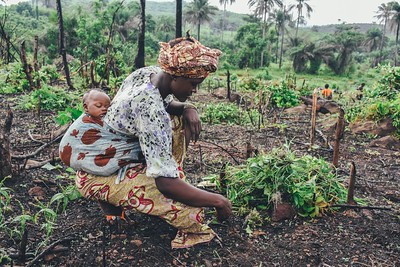On the 9th of July 2022, representatives of the 139 member States of the Intergovernmental Science-Policy Platform on Biodiversity and Ecosystem Services (IPBES) ratified the Values Assessment Report on the Diverse Values and Valuation of Nature. In collaboration, 82 transdisciplinary experts from around the world with Indigenous and local knowledge developed the report, which draws on the 2019 IPBES Global Assessment report. The report concluded that nature and its contribution to people were degraded at an unprecedented rate and scale in history.
Recently, political and economic decisions have considered nature to acquire short-term profits and bolster economic growth instead of giving importance to nature to improve people’s quality of life. This report provides methods to help policymakers better understand aims at providing methods intended for policymakers to ease their comprehension of the different human perceptions and relations to nature worldwide. In this vein, decision-makers can have a common language balancing the interconnected economic, social and environmental dimensions to contribute to fulfilling the 2050 Vision for Biodiversity, and the 2030 Agenda for Sustainable Development. This implies addressing power discrepancies between stakeholders and incorporating the diverse values of nature and humans into decision-making. The report refers to the “values of nature” as the way people perceive, experience and interact with nature-based on world views, cultures, knowledge systems and disciplines.
“People live from nature, people also live with nature, in nature and as nature.” Unai Pascual, Co-Chair of the Values Assessment report.
The underrepresentation of nature and local populations
Policies fail to comprehensively recognise socio-ecological interactions in different contexts, as pinpointed by Anne Larigauderie, Executive secretary of IPBES. For example, food security policies often disregard issues of cultural identities related to food, dietary diversity and relationship to environmental health.
The need for profits and economic growth has been the focus in decision-making at the expense of nature’s value, which triggered our current biodiversity crisis. Evidence demonstrated that ignoring, excluding, or marginalising local values are drivers of socio-environmental conflicts worldwide. These conflicts can stem from power asymmetries in society that undermines the benefits of the environmental policies, as stipulated by Unai Pascual. Nowadays, market-based values of nature, associated with food produced intensively prevails, which is also a source of this turmoil.
Knowledge systems and environmental contexts are characteristics that make people value nature in different ways. Thus, the report lays out different pathways to a more sustainable future. Lately, intensive industrial agricultural practices have developed at the expense of biodiversity. This has conducted to a biodiversity crisis threatening food security. Hence, it is crucial to understand the consequences of disregarding nature’s multiple values and to reshape our farming methods towards nature-centred practices, such as agrobiodiversity, for the conservation of the capital of our natural resources.
Assigning adequate values to nature and humans
“The typology of values has been created and allows us to have a common language and a common understanding about what these diverse values of nature are.”, Unai Pascual.
Human life has been disconnected from nature, creating an unsustainable utilisation of natural resources. It is crucial to assign a value to nature to identify and measure the potential negative consequences resulting from human activities on it, as stated by Patricia Balvanera, Co-Chair of the Values Assessment report. Methods must be used to represent the values of local and indigenous people, as asserted by Rebecca Chaplin-Kramer, co-author of the Values Assessment report.
The report stresses that the unit of indicators matters. As such, the unit, enabling to scale of the pros and cons of the activity, must be appropriate to provide a clear picture of the potential consequences. Values must not only be turned into economic indicators but also, or in some cases rather, biophysical indicators, as highlighted by Sander Jacobs, co-author of the Values Assessment report. Further, financial value can be meaningless when it comes to measuring cultural or sacred values, as explained by Patricia Balnavera. Decision-makers must not prioritise their efforts on economic growth at the expense of a green economy, degrowth, Earth stewardship, and nature protection.
“There is not only one vision or one methodology to evaluate or value our nature.” Anna Maria Hernandez Salgar, chair of IPBES.
This report covers more than 50 approaches to classifying the value of what people hold for nature. There is a need to implement a transparent decision-making process where different values and how they are considered, must be exhibited explicitly, as pointed out by Unai Pascual. Considering a typology of nature’s values including the richness of people’s relationships with nature will enable us to become aware of the trade-offs involved in prioritising certain values against others, as stressed by Unai Pascual. For instance, giving value to ecosystem services may enhance food production by safeguarding, among others, pollination or soil formation.
Understanding the benefits of valuing nature and humans for food systems
Among the values addressed in the report, considering the knowledge of indigenous peoples and local communities substantively builds up more adequate, inclusive, fair and sustainable food systems. For instance, in agroecosystems, recognising and assigning credence to the knowledge and values of smallholders, including women, is essential to ensure food security and the sustainable use and conservation of agrobiodiversity by farming communities.
The One Health approach is a relevant initiative including diverse values linked with various sectoral interests encompassing food, water, health, climate, and biodiversity conservation.
In a nutshell, capacity-building around the world and collaboration among a large range of stakeholders with a view on collective action towards sustainability with recognition of values for nature and humans will contribute to fostering a transformative change.
Written by David Mingasson, SIANI reporter
